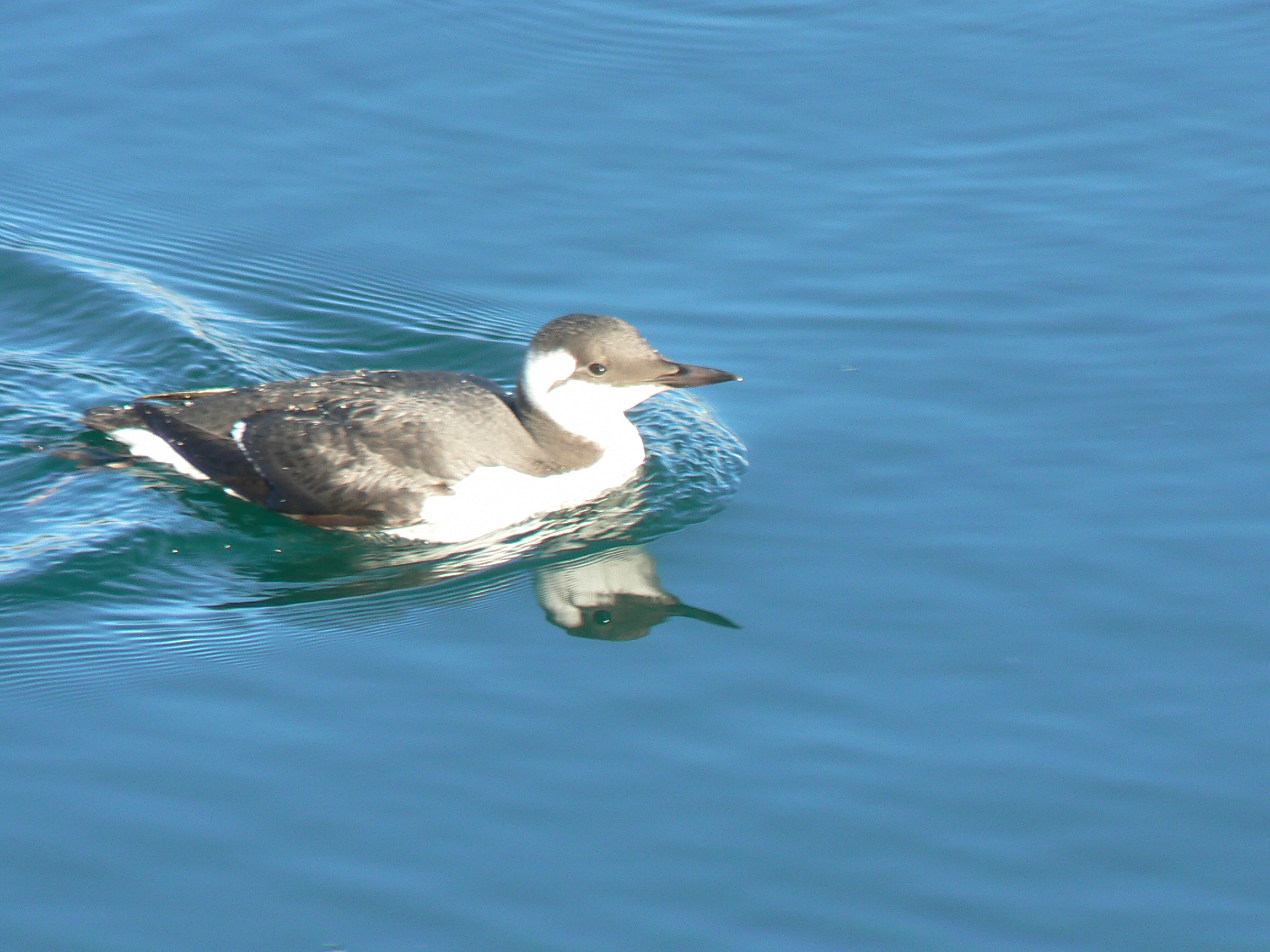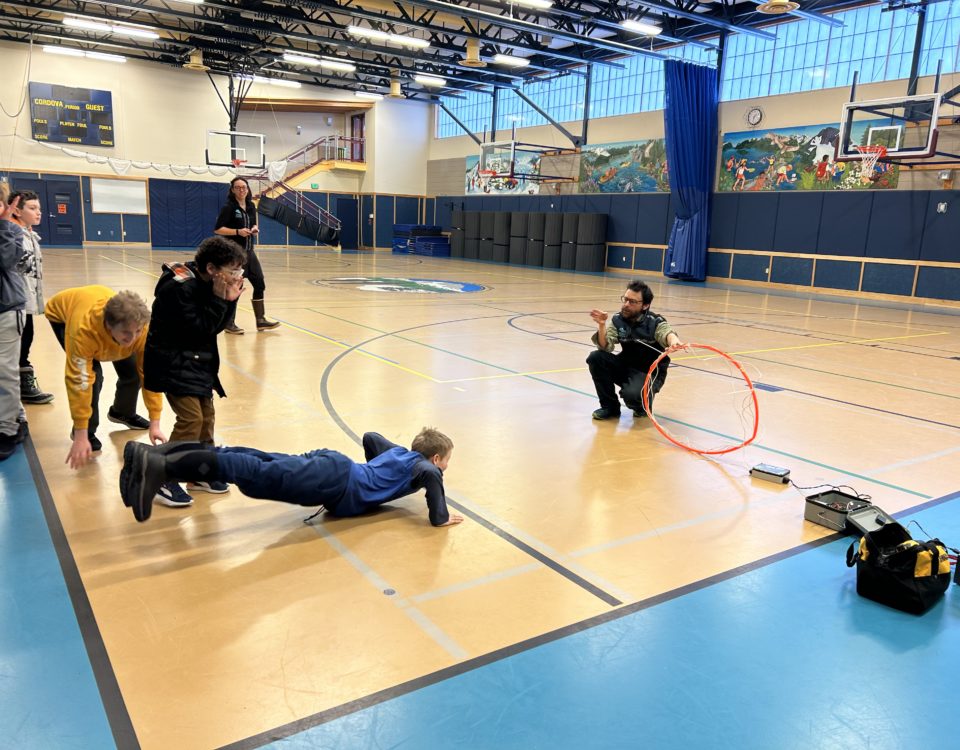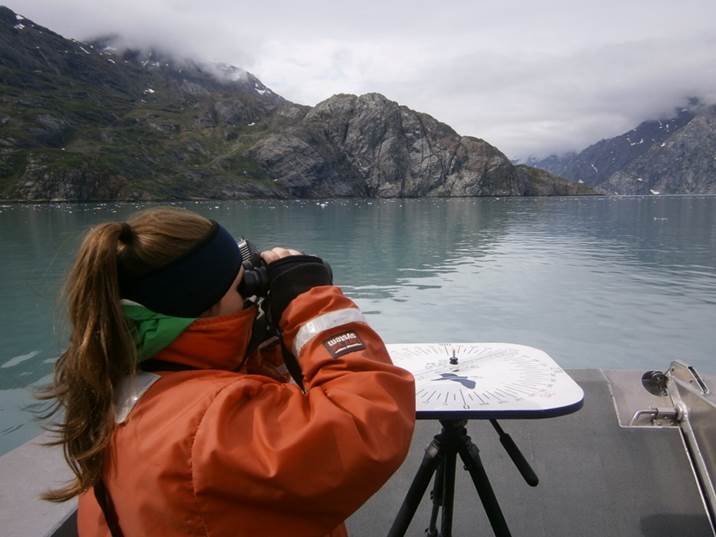The Exxon Valdez Oil Spill Trustee Council (EVOSTC) and state and federal agencies are supporting a long-term monitoring program in the Gulf of Alaska region affected by the 1989 Exxon Valdez oil spill. The program originated after a multi-year public process in which the EVOSTC sought input from throughout the spill-affected area on the most impactful way to spend their research dollars. As a result of extensive public input, a nationwide competition was held to solicit the most meaningful multi-disciplinary, integrated research programs that could achieve the Trustee Council’s goals. In 2012, through an invitational process, the Council selected a multi-disciplinary team headed by the Alaska Ocean Observing System, Prince William Sound Science Center, and NOAA to begin work on a five-year integrated long-term monitoring system. A second open competition was held in 2017. The results are known today as the Gulf Watch Alaska and Herring Research and Monitoring programs.
These programs are unique in their anticipated 20-year timeframe, forward thinking, and organization to pursue science in a way that integrates multiple disciplines and is informative to resource managers, researchers, stakeholders, and the public. Through sponsoring agencies and organizations, the EVOSTC requires interdisciplinary and collaborative research, sophisticated data management with publicly available data, regular reviews to maintain relevance and scientific integrity (e.g., science review panel, public advisory committee, and agency Trustees), science synthesis work, and outreach. Most importantly, the EVOSTC have made a commitment to long-term ecosystem level monitoring that is manageable and sustainable.
Gulf Watch Alaska is the EVOSTC’s long-term monitoring program that includes scientists from multiple agencies and organizations and seeks to provide data to identify and help understand the impacts of multiple ecosystem factors on the recovery of injured resources. This program is expected to be 20 years in total length, with planning and funding occurring in five-year increments. It builds upon three decades of restoration research and monitoring by the EVOSTC and federal and state agencies.
OVERVIEW
Monitoring the rich diversity of biological resources in the northern Gulf of Alaska region is an important part of the Science Center’s work. In the aftermath of the Exxon Valdez oil spill, it was clear that baseline data collection through monitoring is critical to understanding damages to our environment, whether the damages are caused by nature or humans.
PWSSC’s ecological research efforts are focused primarily on marine, intertidal and estuarine resources. Located in one of Alaska’s major fishing ports at the edge of the northern Gulf of Alaska, PWSSC staff observe and study one of the most seasonally fluctuating coastal ecosystems in the North Pacific Ocean. Prince William Sound’s dramatic fjords, the expansive lake and river systems of the Copper River watershed, and the vast freshwater wetlands and estuarine mudflats of the Copper River Delta are the focus of the center’s present and future research. Increasingly, our long-term monitoring is focused on the effects of climate change and global warming, which are real and visible here.
In the years since the 1989 Exxon Valdez oil spill, it has become apparent that the ocean ecosystem can undergo profound changes and such changes may hinder a return to pre-spill conditions. The EVOSTC’s 1994 Restoration Plan recognized that recovery from the spill would likely take decades. A Restoration Reserve was created from the plan in part to provide for long-term observation of injured resources and services and for appropriate restoration actions into the future. To further this effort, in 1999 the EVOSTC also supported the development of a long-term research and monitoring program.
Long-term monitoring after an oil spill has two components: monitoring the recovery of resources from the initial injury and monitoring how factors other than oil may inhibit full recovery or adversely impact recovered resources. This second type of monitoring collects data on environmental factors that drive ecosystem-level changes. The information that is produced from such monitoring may be used to manage individual injured species and resources. However, such data are increasingly valuable in illuminating the larger ecosystem shifts that impact and influence the broad variety of species and resources injured by a spill.
An integrated monitoring program requires information on environmental drivers and pelagic and benthic components of the marine ecosystem. Extensive monitoring data have been collected thus far through EVOSTC-funded programs such as Gulf Watch Alaska and its sister, the Herring Research and Monitoring Program. Information from those programs, combined with other studies, allows us to understand the range of factors affecting individual species and the ecosystem as a whole. Combining historical and ongoing monitoring data across many scientific disciplines, known as synthesis work, is useful to answer remaining questions about the recovery of injured resources and impacts of ecosystem change on spill-affected resources.
The Gulf Watch Alaska web page (gulfwatchalaska.org) includes information about the projects that are part of the program, recent findings, synthesis efforts, project team members, outreach, and reports and publications.
TEAM LEAD CONTACT INFORMATION
Program Lead
Mandy Lindeberg
National Oceanographic and Atmospheric Administration, National Marine Fisheries Service Auke Bay Laboratories
17109 Pt Lena Loop Road
Juneau, AK 99801
907-789-6616
Email: mandy.lindeberg@noaa.gov
Rob Suryan, PhD
National Oceanographic and Atmospheric Administration, National Marine Fisheries Service Auke Bay Laboratories
17109 Pt Lena Loop Road
Juneau, AK 99801907-789-6065
Email: rob.suryan@noaa.gov
Donna Aderhold
Prince William Sound Science Center
353 Grubstake Ave.
Homer, AK 99603
907-244-4388
Email: daderhold@pwssc.org
Katrina Hoffman
Prince William Sound Science Center
Box 705
Cordova, AK 99574
907-424-5800 x222
Email: khoffman@pwssc.org




